Ukraine has been a safe haven for many foreign nationals. But now what?
By Adam Zivo
Russia’s invasion of Ukraine has been terrifying for Ukrainians, with six million fleeing to other countries in Europe and around the world. But the story of foreign nationals – including students and people from other countries who were living in the country when Russia attacked – has been more complicated. International media reported that African residents who tried to escape the fighting were turned away at the borders and at train stations in Ukraine, although some racialized refugees have said that media reports of racism were overblown.
Ukraine has been a safe haven for many foreign nationals. Some have stayed in the country because they do not want to return to the countries where they were born, and fear they may not be accepted in other countries. Others have decided to stay because they enjoy Ukrainian life, with some having married locals and started families in the country.
Most foreigners have left as a result of the war – for example, over 85 per cent of Ukraine’s Indian nationals have been evacuated from the country. In cities where it was once commonplace to bump into Africans, few can now be spotted. The foreign nationals who remain are rare stragglers.
Now imagine being LGBTQ+ while facing these challenges.
I sat down to talk with two gay Nigerian men in Ukraine, John and Valentine. John is a soft-spoken, though talkative, introvert who keenly follows international politics and takes a calm and level-headed approach to political conflict. He prefers playing board games with his friends rather than going to local techno-clubs. Valentine is similarly introverted – an easy-going giant of a man who often pauses before he speaks and is careful with his words. He is less political and prefers to focus on work, urged by a strong sense of duty to those around him.
The two of them – one out from a young age, one not out at all – did not know each other until they were introduced during the research phase of this article (aka: we all grabbed drinks together), but their stories are nonetheless very similar. Both are in their late 20s and had come to Ukraine as students, and while they had initially been motivated to stay in Ukraine mostly because they did not want to return to Nigeria, over time they came to love the country. Both of them came from religious families where homosexuality was not accepted, and neither of them attended church anymore.
To protect their privacy, Valentine asked that only his first name be used and John asked to use a pseudonym. Both requested that potentially identifying details about their professional and student lives be kept private.
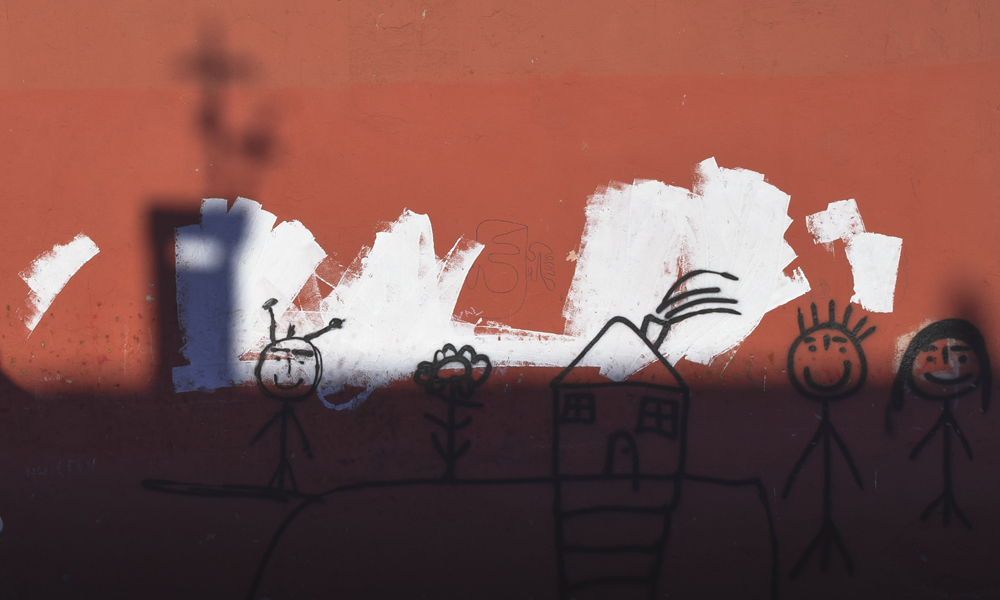
How Ukraine got an African diaspora
Before the Russian invasion, Ukraine had a large international student population – local universities are very affordable and Ukrainian degrees can provide a gateway to jobs in the European Union. As a result, there were many Africans in Ukraine’s major cities. For that same reason, there were other minority communities, too – for example, there were approximately 20,000 Indians in Ukraine before the war, of which about 90 per cent were students. But these communities have now almost entirely disappeared.
Many of these international students studied in Kharkiv, Ukraine’s second largest city with a population of almost 1.5 million people, which has a large number of universities and a reputation for research, particularly in medicine and science. The universities helped create an African community – John said that it was impossible to walk through Kharkiv without bumping into a fellow African.
Valentine, who studied medicine but no longer works in health care, disagreed and said that it was possible to go a week without seeing Africans in Kharkiv, so long as one avoided the university area. He hadn’t studied in Kharkiv, though, and had completed his medical degree in Lviv; he said that Lviv’s African community was smaller but more closely knit.
Local Africans were often brought together through religious worship. “There are a lot of churches in Kharkiv,” said John. “When I came here first, I met some people and pretty much the first thing they did was take me to their church. We’re religious in Nigeria, so it’s kind of the first thing your parents tell you as well – to find a church and go to God. No matter what you do, no matter how you spend your Saturday or Sunday, you kind of find yourself in church.”
National and regional distinctions, of course, matter in Africa, as they do all over the world. But in Ukraine these regional differences were erased – Ukrainians saw all Africans as simply “Black,” and so African nationals constructed their communities around that lens, too.
“I guess it’s not a secret that there are a lot of Africans around the world – we have to find this thing in common: we are all Black,” said John. “As far as we know, people do not see the difference between all of us and we shouldn’t see that difference.”
However, national identities can still matter. “We Nigerians are the loudest,” laughed Valentine, who noted that all 12 of his African classmates in his year were Nigerians like himself. Meanwhile, the Nigerian Student Association at his university had about 250 members. “We had this small group of Nigerians who were just constantly annoying most of the time. That’s why it was different for me – to feel that Nigerians were kind of separate. I was kind of surrounded by them all the time. But for most people, it was like – oh, we’re Africans.”
John and Valentine both noted that Ukraine had become significantly less racist over the past decade. When they first arrived, the country was culturally “closed” to foreigners, but attitudes have changed as Ukrainians became increasingly exposed to other ethnicities. “Now we have a lot of Africans working with young people, a lot of integration, a lot of interracial relationships, and we have foreigners mingling with Ukrainians,” said Valentine. “They get to understand that these guys are cool.”
Simultaneously, Ukraine had become much more accepting of LGBTQ+ people. John and Valentine partially attributed this transformation to the 2014 Euromaidan Revolution, where Ukrainians overthrew a corrupt pro-Russian government and warmed to more European values. Endeavouring to show that Ukraine’s future was European, not Russian, Ukrainians made an effort to be more tolerant of minority groups.
Of course, racism still exists, but Valentine said it depends on the crowd and it is “not the prevailing culture in Ukraine, especially among the young people.” John agreed that racism was context-sensitive and, although he didn’t think he would be attacked in Kyiv or Lviv, he still kept pepper spray with him. His primary experiences of racism from Ukrainians tended to be from drunk ones, the exception being one time, many years ago, when he was threatened with a knife in a public place by a skinhead.
Though the experience was traumatic, John was more disappointed by the bystanders who did not intervene. Only twice during his time in Ukraine have locals stepped in to protect him from harassment. Both times, his allies were old women who worked in nearby kiosks, and who came to his aid armed with sticks, shouting, “Leave him alone! Get away from him!”
When asked about rumours that Ukraine was rife with Nazis and fascists, both Valentine and John said that this was not their recent experience, due to Ukraine’s ongoing social liberalization. “I wouldn’t say it’s a thing that has come up very often in the past eight years. Before 2014, Ukraine was a totally different country. Before that time I would have answered yes,” said John.
Love and belonging
As a gay Nigerian, John believes he cannot be open about his sexuality in any aspect of his life. When he told his mother he was an atheist, it broke her heart. She still cries frequently about it. With just atheism being such a point of tension, he imagines coming out to be simply impossible. Though John believes his mother is a great person, he worries that she will blame herself for his homosexuality and “spend her time praying and crying and hoping for me to find my way back.”
Because the African diaspora tends to know each other through church attendance, and also through schooling, it has been difficult for John to live comfortably as a closeted gay man. Everyone knows everyone. If any community member found out about his orientation, eventually everyone would. “It’s just difficult to have a double life in a city like Kharkiv,” he said.
In his early years in the Ukraine, John was unhappy not only with the claustrophobia of the African community, but with the chasm between foreigners and Ukrainians. Though Kharkiv’s foreigner population was large, non-nationals tend to keep to themselves. The international students often ghettoized themselves among university peers, reducing opportunities for making intercultural connections.
When John moved to Kyiv several years ago, everything was different, he told me. There was more anonymity, openness and freedom, which made it easier to be gay. Though the city had a smaller proportion of foreigners, fewer of them were students and they were more integrated into society. “Everyone has been really nice and accepting. In my years of living in Kyiv, I’ve experienced two hostile people. And it hasn’t been really bad. Just a drunk person and some grandfather who was unhappy with me speaking Russian.”
However, he found it difficult to mix with the local queer community. Kyiv has a booming techno scene and the city has been described by local hipsters as “the new Berlin.” But John, an introvert, prefers quieter nights playing board games and wasn’t attracted to queer techno culture.
His dating life was also hampered by sexual racism. “Even if this place is becoming very open to queer people, it is not very open to queer people of colour,” John said. Ukrainians saw him primarily as an exotic sexual experience, rather than a person. “I’m not against sex. It’s fine for people to meet people to have sex. It’s not a problem. The problem is when you’re simply this exotic experience, when people say, ‘I’ve never tried a Black guy.’ People still do that and that is extremely…just offensive. I’m still just a thing.”
Valentine had a slightly different experience with his queerness. He came out to his mom when he was 14 and informed her, at the same time, that he had been having sexual experiences at boarding school with another classmate since he was 10. This information shocked her, not necessarily because of the homosexuality, but because sex itself was taboo in the family. She ended up in the hospital. “That’s a story I don’t want to get into yet,” Valentine said, chuckling.
Her attitudes have not changed over time. “Oh no, no, no. She probably thought it was a phase that would pass. She didn’t talk about it, and [since I’ve been away at] boarding school and Ukraine, we haven’t really spent much time in the same house to have this conversation.”
Valentine left the church. Several years ago, he had an identity crisis. After some self-evaluation, he concluded that he was living according to other people’s definition of his life rather than his own.
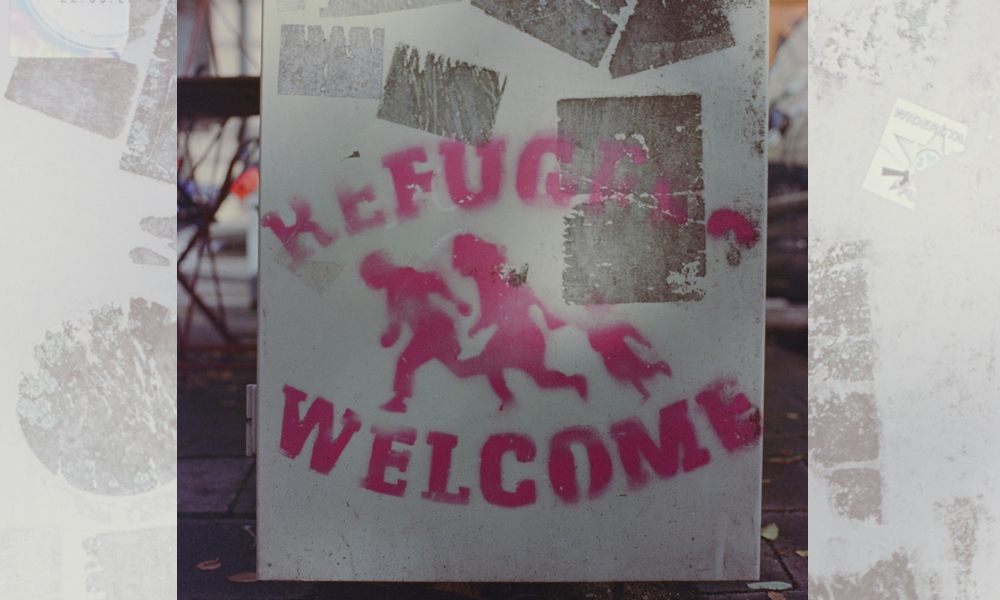
And then the bombings began
All these intrigues about dating and identity, this search for community and belonging, was, like so much else, brutally interrupted by the war. No more romance. No more board games. Just a race to get away from the bombs showering Kharkiv and Kyiv and much of the rest of the country. Any thoughts about sexual orientation “went out the window,” said Valentine, as everyone simply became individuals fleeing the war.
At first, Valentine thought he could wait out the bombings alone in his apartment. He had a remote job and tried to focus on getting work done, but it was impossible. He’d hear an explosion and see debris fly close to his window, and so relocated to another part of his apartment.
“I would get phone calls from Nigeria almost all the time and every single time I got a call, I had to pretend to be strong and pretend to be okay, because if I panic, then they panic, and if they panic, then it’s not so great,” said Valentine. “It was hard. It was painful going through all of that alone. Hearing the explosions around. It was pretty hard.”
Most of Ukraine’s Africans left immediately, typically in groups, some of which were arranged by local churches. International churches were a lifeline, providing them with shelter and aid. After the sixth day of bombing, Valentine began to feel as if he was the last African left in Kharkiv. He eventually left by train for Lviv with some of his Ukrainian colleagues.
The trip was unexpectedly reminiscent of Nigeria for Valentine. “Travelling in Nigeria is sometimes not safe. Most people are afraid when they’re about to go on a journey, so they pray before they go. It’s not something that we do in Ukraine because it’s typically safe. But I literally had to say a prayer – it wasn’t for the train trip, it was to get from my house to the train station,” he said.
As he departed for the station, he thought to himself, “Oh my God, I can’t just die on the street like that. Nobody is going to find me.” The train trip, which typically takes 10 hours, took 30.
Several days after Valentine left Kharkiv, his apartment building was bombed, though his unit was not directly hit.
John made a similar journey to Lviv. At train stations, a women-and-children-first policy saw some Black men denied boarding, but he said that was likely because they were men, not because they were Black. Not having crossed the border, he couldn’t speak to stories that border guards prevented African people, but not white Ukrainians, from leaving the country.
He was concerned that an international fixation on racism had pitted foreigners against Ukrainians, and might invite hostility against foreigners like himself who decided to stay in the country. “It was blown out of proportion, definitely. There were some cases, but it was not that bad,” he said.
Valentine agreed. “I noted at the beginning that there were a lot of videos about the treatment of Africans at the border, but I really haven’t experienced any of that. Ukrainians have been wonderful.”
On the train ride, Valentine noticed that passengers organized themselves amid the overcrowded chaos. Midway through the trip, there was an announcement that children in another wagon were hungry and had no food to eat. Passengers from other cars sent so much food that another announcement had to be made politely asking them to stop.
“They weren’t thinking about themselves; they were thinking about the collective. I have this moment I remember: I saw this father crying, just to get his kid on the train,” said Valentine. “The man wasn’t interested in getting on the train himself. He just wanted to get his kid on. He was shouting. He was screaming, crying. Parents go through a lot.”
The future
When Valentine arrived in Lviv, he did not know what to do with himself. The city was largely peaceful and insulated from the conflict in the east, but no one knew what was going to happen next. He did not know how to settle down. Should he buy only temporary items? Should he prepare for a longer stay?
He was haunted by the thought of those left behind, and could not bear to go out to local cafés and restaurants despite government urgings to continue eating out to stimulate the economy. As we sat together at the bar, he said that what he felt was most likely survivor’s guilt.
One colleague of his, who was back in Kharkiv, had disappeared for two weeks. For those two weeks, no one was sure if the man was dead or alive. Eventually they learned that he had been in a bunker and hadn’t been able to charge his phone. Meanwhile, a man who Valentine had been flirting with online simply disappeared. “I’ve sent him a lot of messages on Telegram. It’s not going through. It says that he was last online months ago. Knowing that someone might be dead, knowing that people are suffering, makes it hard.”
One of John’s biggest problems was his new landlord, an old woman who charged him inflated rent for a rundown apartment with poor heating. As so many people in Kyiv had fled to Lviv, landlords had no shortage of prospective renters and occasionally tried to take advantage of them. Even though John had arrived in Lviv early in the war, he was not spared price gouging.
Even through the difficulty of war, John sees the country as his home, and he has come to love Ukrainian culture, especially since the 2014 pro-European revolution. Returning to Nigeria is not an option. “My Nigerian friends don’t like me saying this, but it’s pretty bad right now. It’s really bad right now, in Nigeria.”
Though Nigeria’s economy has grown rapidly over the past 20 years, income inequality has soared and national wealth has been monopolized by a tiny elite. John grew up in an upper-middle class family, but he says that such families do not exist anymore: everyone is either incredibly rich or incredibly poor. At one point, his mother, who works for the government, wasn’t paid for five months. John out-earns her, but she has to provide for an entire family back home. He occasionally provides financial support for medication and emergency needs.
“Sure, there’s war in Ukraine, but there is electricity 24 hours a day. At some point, my parents didn’t have electricity for a month. They were spending so much money on food because they couldn’t refrigerate anything. A couple of weeks ago there were two train attacks, terrorist attacks. My sisters live in Nigeria and they’re not safe. They have to take cars everywhere. The quality of life is so bad. You love the country. You love the people and the culture. But the people in charge make it unlivable,” John said.
Valentine is not planning to return to Nigeria either. “Leave Ukraine? To what? I can go back to Nigeria, but I haven’t really interacted with the people there in almost 11 years. The last time I went to Nigeria was almost seven years ago. Besides my family members, every other person would be strangers. It would be going back to a life I don’t know. The people I know and have worked with are in Ukraine.”
He did not want to “roam about Europe like a refugee” and said he would only leave Ukraine if he had a clear plan for his future. Leaving the country would also be like betraying his colleagues, who are barred from fleeing because they are Ukrainian men. A fellow African fled to Hungary a few days into the war, but, for Valentine, abandoning ship simply did not feel right.
While going back to Nigeria is not appealing, neither is fleeing to neighbouring countries, where support for refugees is essentially limited to Ukrainian refugees. Little thought was given to foreigners who had made a life in Ukraine but did not have Ukrainian citizenship. Many of these exiles now find themselves in a precarious limbo, floating around Eastern Europe on short-term visas. Some are in refugee camps, others are in churches.
For Africans who had made an attempt to settle down in Ukraine and start a new life there, the tragedy of war runs deeper. “Some of them have families that are Ukrainian. Some of them are married. Africans came and married Ukrainians and started raising their families here,” said John.
After we departed from the bar, John and Valentine chatted on the way home. John messaged me afterwards and said he was happy that the two of them had met. It made him feel less crazy for staying in Ukraine.
They had come to this country simply looking for education, and they had found, against their expectations, a home for themselves. Ukraine was where they had spent their 20s and had come into themselves as gay men, despite occasional problems with prejudice. They had watched the country grow more cosmopolitan with each year, to the point where the society they found themselves in could hardly be recognized as the one they had arrived to. After a decade in Ukraine, they did not want to leave. Not unless it was on their own terms.
—
ADAM ZIVO is IN Magazine’s politics and culture columnist. He is a Toronto-based social entrepreneur, photographer and analyst best known for founding the LoveisLoveisLove campaign.

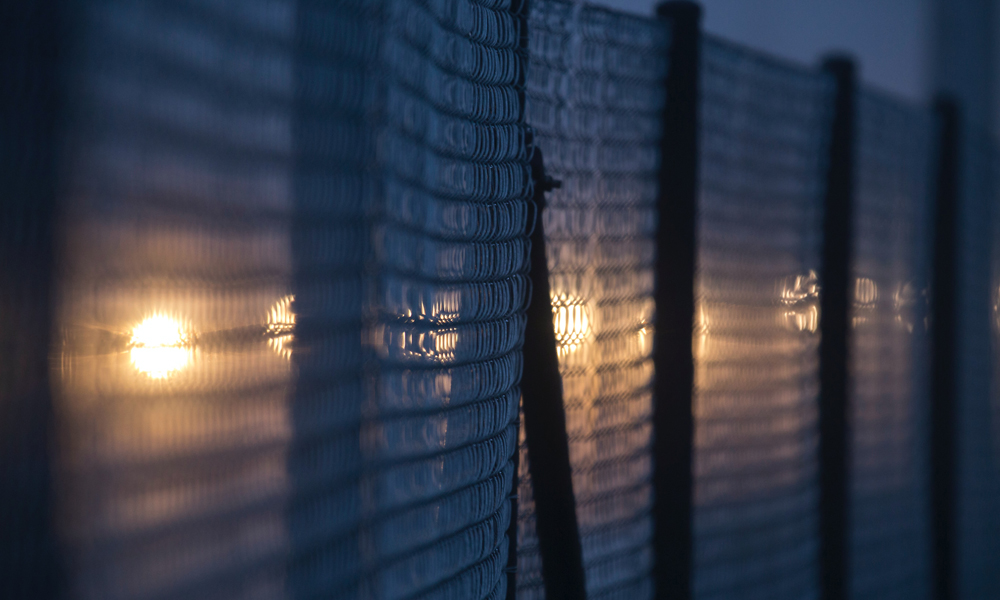
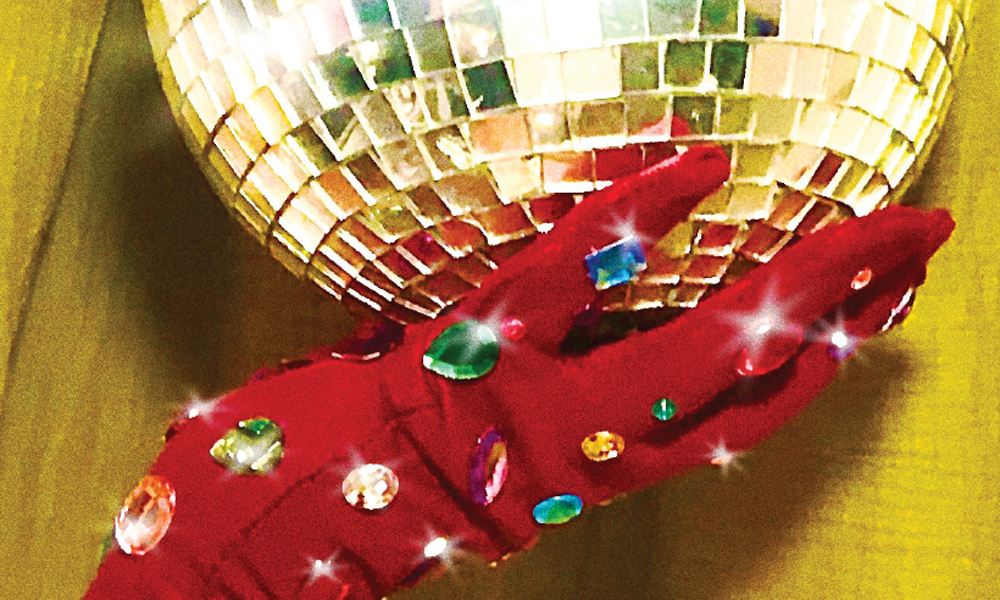
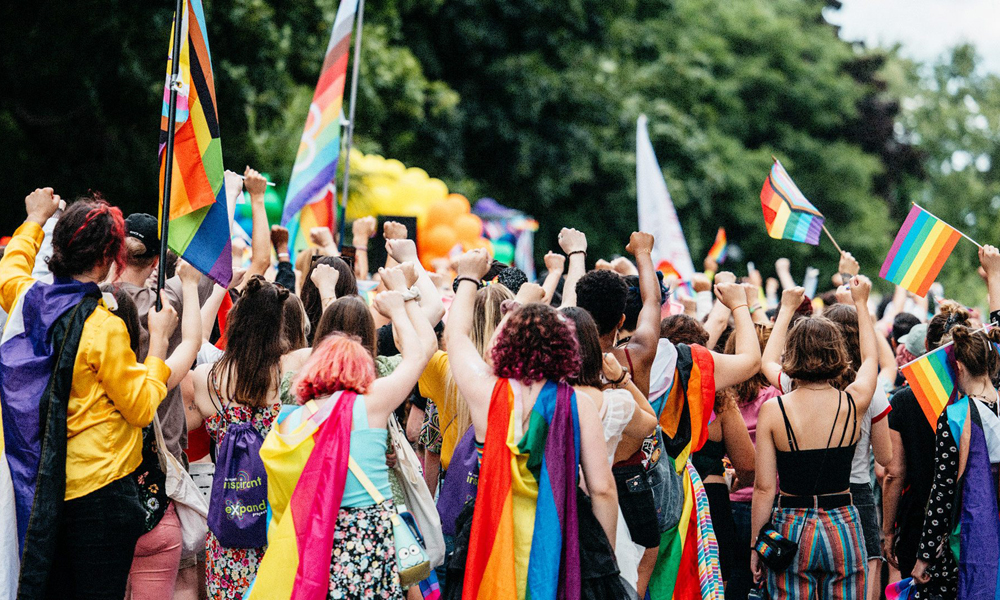
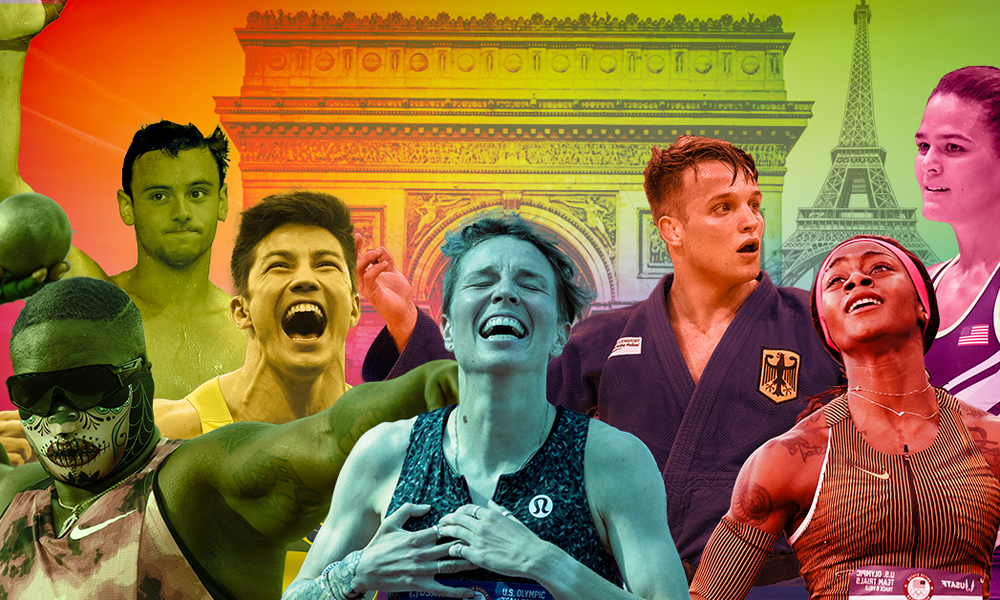

POST A COMMENT